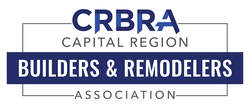|
NYSBA’s Legislative Agenda for 2023 focuses on three main issues:
|
|
Capital Region Builders & Remodelers Association (CRBRA)
10 Old Plank Rd | Clifton Park, NY 12065 Phone: 518.579.0066 | [email protected] Copyright © 2024 All Rights Reserved. Site Map |
